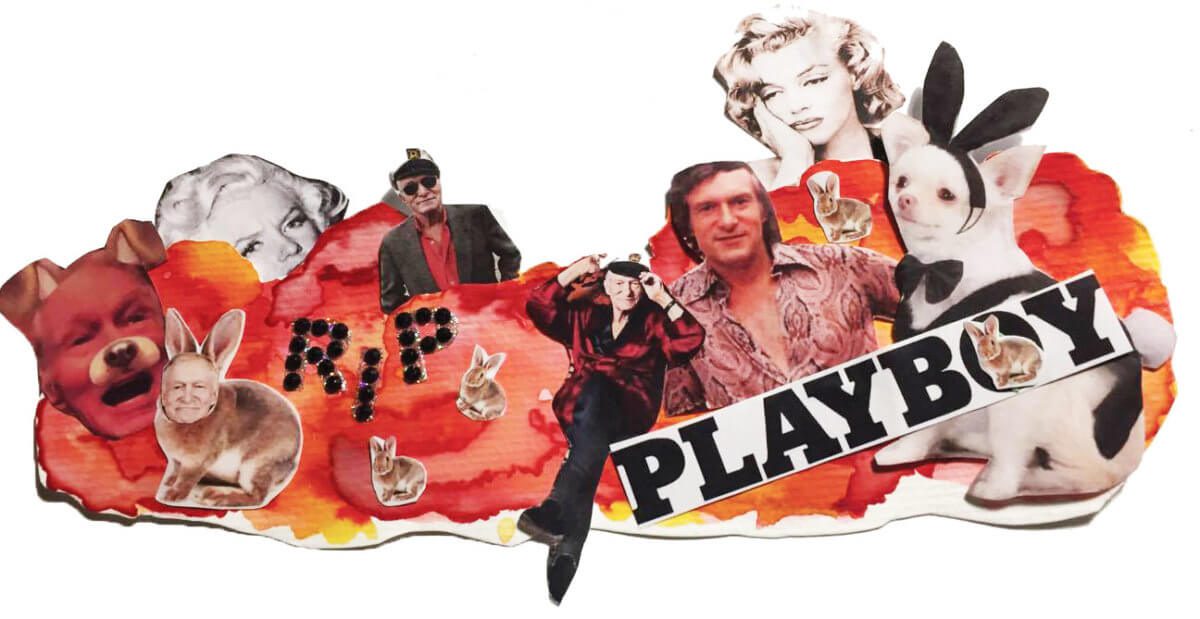On 27 September, Hugh Hefner – philanthropist, cuniculophile and pornophile – passed away in his Los Angeles home. The media magnate is perhaps best known for his carefully curated art magazine – ‘Playboy’ – featuring nudes reminiscent of those of Ancient Greece (mirroring Hefner’s careful critique of Greco-Roman hedonism in his highly influential publication). Living to the grand old age of 675 (in rabbit years), Hefner is expected to be interred next to Marilyn Monroe, the crypt next to whose he bought in 1992, saying, ‘spending eternity next to Marilyn is an opportunity too sweet to pass up.’
A stalwart advocate for workers’ rights, Hefner started his publication after he was refused a $5 raise at ‘Esquire’. Initially intending to call the magazine ‘Stag Party’ – paying homage to Rousseau’s stag hunt, a game theory dilemma – Hefner eventually opted for ‘Playboy’, looking for a simpler title.
A lover of the arts, Hefner sought a return to the sensuality of classical Greek. And, of course, later he turned to Renaissance nudes, the image of Bo Derek on the March 1980 cover on a sandy beach in a ragged bikini harkening back to Helen on the beach after the fall of Troy. Indeed, Hefner once stated, ‘Picasso had his pink period and his blue period. I am in my blonde period right now.’
Hugh Hefner was, perhaps more than anything else, a friend to the animals. He once explained that, ‘from my point of view, I’m the luckiest cat on the planet’ – a blatant reference to his strong identification with the animal kingdom. His strong identification with the primal behaviours of wild creatures certainly influenced his lifelong ethos. Indeed, it was surely for this reason that Hefner dubbed the waitresses at his Playboy Clubs ‘Playboy Bunnies’. The concept of having a creature of the Earth serve food prompted the customer to consider sustainable sourcing, and potentially vegetarianism. Rules which forbade customers from touching Bunnies and the prohibition of dating between patrons and Bunnies nurtured a sense of respect and wonder for nature. But it was not just the wonders of the physical world that interested Hefner.
‘I guess you could say; I’m just a typical Methodist kid at heart.’ These solemn words uttered by Hefner perhaps best encapsulate his philosophy. Each Playmate became simultaneously a Madonna and a Mary Magdalene, Hefner embarked – throughout his editorial career – on an opulent, intellectual and salacious exploration of biblical morality and ethics.
‘One of the problems with organised religion’, said Hefner, ‘is that it has always kept women in a second-class position. They have been viewed as the daughters of Eve.’ Through his exploration of themes of possession, control and biblical analysis, Hefner drew the eyes of his audience to the story of Hagar. Hagar was the Egyptian handmaid of Sarah, who was given by Sarah to Abraham to bear him a child. Subsequently, Hagar and her son were cast out by Abraham. By mirroring this experience in the manner of a Playmate leaving the Playboy Mansion, Hefner encouraged us to turn a sceptical eye towards the Bible, to deepen our faith.
The Book of Hugh, the Bible of the modern world.
Rest in peace.
We acknowledge the Ngunnawal and Ngambri people, who are the Traditional Custodians of the land on which Woroni, Woroni Radio and Woroni TV are created, edited, published, printed and distributed. We pay our respects to Elders past and present. We acknowledge that the name Woroni was taken from the Wadi Wadi Nation without permission, and we are striving to do better for future reconciliation.
